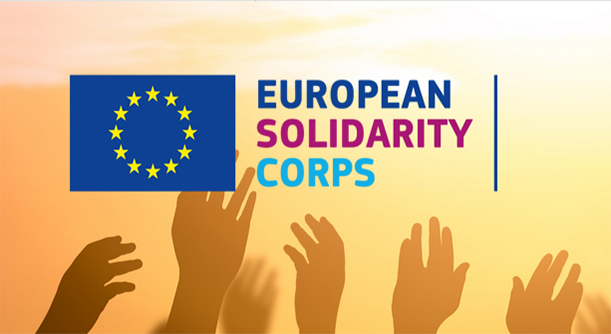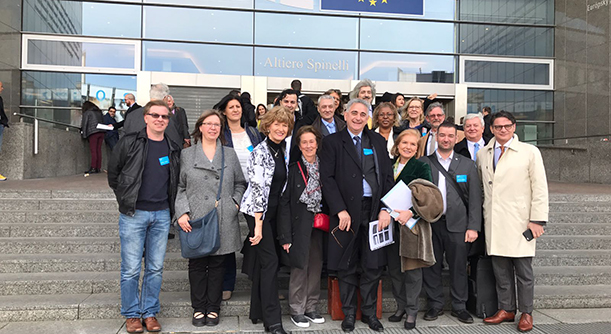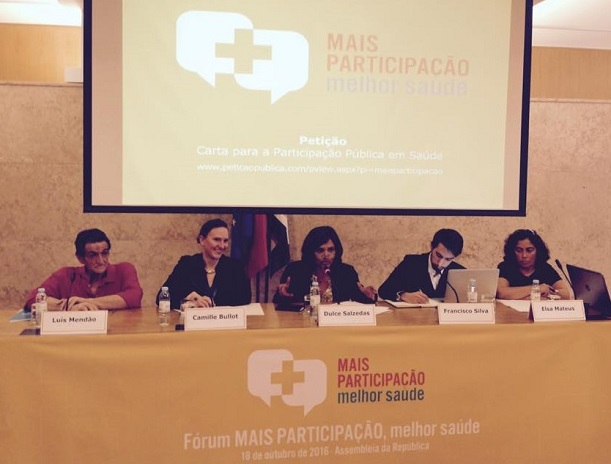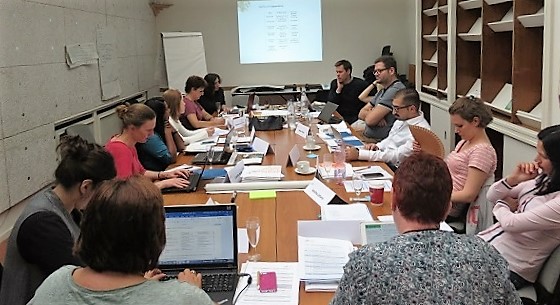Announced by the President of the European Commission Jean-Claude Juncker in his annual address before the European Parliament in Autumn 2016, the European Solidarity Corps aims to offer volunteering and work placement opportunities to young people around Europe. The European Patients’ Forum is ready to support this flagship initiative, with the provision that it becomes a beacon for inclusion and equity.
On 12 April 2017, the European Solidarity Corps Stakeholder Forum brought together national and European representatives of civil society organisations, authorities and other stakeholders to discuss the key issues related to the future development of the European Solidarity Corps (ESC). Over 27,000 young people have signed up so far.
The European Patients’ Forum (EPF) welcomes the initiative: patient organisations have a long tradition of working with volunteers – in fact most patient organisations including EPF members operate thanks to volunteers. In that sense, we see in the European Solidarity Corps the chance to spotlight the extraordinary contribution of patient organisations’ volunteers, young and old, which is too often overlooked.
If implemented well, we see the European Solidarity Corps as a double opportunity for the patient community: first, young patients will become involved as mainstream actors and potential volunteers, which could support their skills-building, transition and integration into paid work. This could also be transformative in overcoming prejudice and stigma. The second opportunity is that patient organisations in Member States – national, regional or local ones – will benefit from more volunteers as they are often very short-staffed and poorly resourced. The European Solidarity Corps could thus make patient groups more visible as “primary targets” for volunteering.
However, without due vigilance, there is also a risk that this programme paves the way for exploitative free or cheap labour. This risk is even greater for young patients, as they are considered more vulnerable and face additional discrimination in “real employment”. Therefore, we believe that a clear definition of quality volunteering and of quality work placements, traineeships and apprenticeships should be at the core of the ESC. It should also be clear that this is not about shifting service delivery to the “third sector” and non-governmental organisations, in a way that allows governments to eschew their responsibilities. This would result in a very negative perception of the ESC and potentially undermine civil society’s central advocacy role.
Another crucial point for EPF is the need to ensure access to the European Solidarity Corps to young people from disadvantaged backgrounds or with specific needs. Such an initiative should be a beacon for inclusion. A specific budget should be allocated to cover costs for personal assistance or extra-support that could be needed for the young person.
When it comes to the operationalisation, we believe that there should be clear and sustainable funding mechanisms. The funding of the initiative has to be clarified by the European Commission, and should not be squeezed from existing programmes. Indeed, the implementation of ESC should add to and complement current initiatives, and not in any way endanger or overshadow their success.
Finally, we should not forget the huge issues facing Europe in the healthcare sector, and notably the persistent inequalities in access to health and social care. Although we acknowledge the ESC’s potential added value for patients and citizens across Europe, the European Patients’ Forum would like to see as much willingness to act on highly political and profoundly human issues such as access to health and social care and the implementation of the Sustainable Development Goals, which the European Union should spearhead, together with the Member States.



